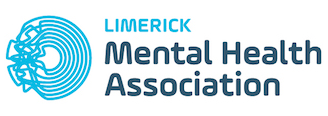
Mental health is an important issue that affects people all over the world, and the Irish are no exception. According to a report by the World Health Organization (WHO), Ireland has the fourth highest rate of suicide in the European Union, and mental health issues are a leading cause of disability in the country (1). While the issue of mental health is not unique to Ireland, the country’s history and cultural attitudes towards mental health can pose unique challenges.
One factor that has contributed to mental health issues in Ireland is the history of institutionalisation of people with mental illnesses. Until the late 20th century, people with mental illnesses were often placed in institutions, where they received substandard care and were subjected to abuse and neglect (2). The effects of this history can still be felt today, as many people in Ireland are hesitant to seek treatment for mental health issues due to stigma and fear of institutionalisation.
Additionally, the cultural attitudes towards mental health in Ireland can pose a challenge to those struggling with mental illness. The concept of “keeping up appearances” and not airing one’s problems in public is deeply ingrained in Irish culture (3). This can make it difficult for individuals to seek help for mental health issues, as it is often seen as a sign of weakness.
Despite these challenges, there have been efforts in Ireland to address mental health issues and reduce stigma surrounding mental illness. In 2006, the Irish government launched a national mental health policy aimed at promoting mental health and improving access to mental health services (4). Since then, there has been a push to increase funding for mental health services and improve access to care for those in need.
In addition to government efforts, there are also numerous non-governmental organisations (NGOs) and charities working to promote mental health and support those struggling with mental illness in Ireland. One such organization is Pieta House, which provides free counseling services to those experiencing suicidal ideation or self-harm (5). Another organisation, Aware, focuses on depression and bipolar disorder, providing support groups and educational resources for those affected by these conditions (6).
In conclusion, mental health is a pressing issue in Ireland, with high rates of suicide and mental illness affecting many individuals and communities. The country’s history of institutionalisation and cultural attitudes towards mental health can pose unique challenges to those seeking treatment. However, there are efforts being made to address these challenges and improve access to care, including government initiatives and the work of NGOs and charities. By continuing to promote awareness and provide support, we can work towards improving mental health outcomes for all individuals in Ireland.
References:
World Health Organization. (2016). Mental Health in Ireland: Country Profile. Retrieved from https://www.who.int/mental_health/evidence/atlas/profiles-2014/irl.pdf?ua=1
Daly, M. (2017). Institutionalisation and Deinstitutionalization: Irish Perspectives on the History of Mental Health. Irish Journal of Psychology, 38(1), 38-46. doi: 10.1080/03033910.2017.1303045
Kelleher, C. (2012). “Keeping Up Appearances”: Stigma and Mental Health in Ireland. Culture, Medicine, and Psychiatry, 36(2), 257-273. doi: 10.1007/s11013-012-9257-7
Department of Health and Children. (2006). A Vision for Change: Report of the Expert Group on Mental Health Policy. Retrieved from https://www.hse.ie/eng/services/publications/mentalhealth/vision-for-change.pdf
Pieta House. (n.d.). About Pieta House. Retrieved from https://www.pieta.ie/about-pieta-house
Written by Ian Hackett, Limerick Mental Health Association Manager
